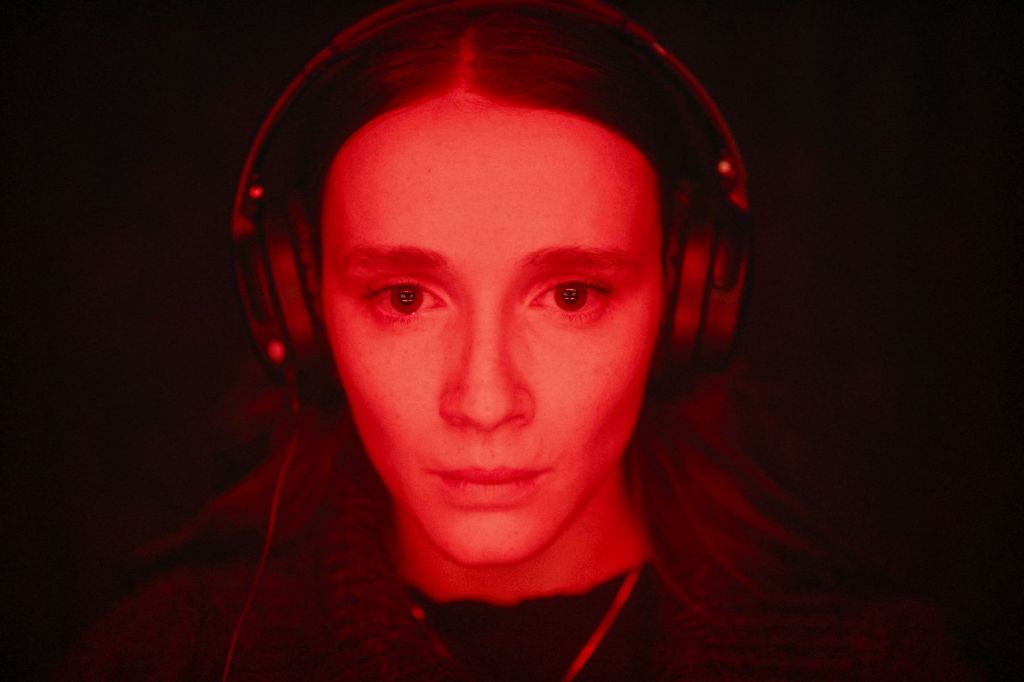
EXCLUSIVE: Canadian filmmaker Pascal Plante has returned to feature filmmaking.
His latest pic is Red Rooms (Les chambres rouges), a taut, genre-bending tale about obsession, gender, and technology.
The tricky plot follows Kelly-Anne (Juliette Gariépy), who wakes up every morning and heads to her local courthouse to secure a seat at the high-profile trial of Ludovic Chevalier (Maxwell McCabe-Lokos), a serial killer she is obsessed with. As days go by, the young woman bonds with another groupie (Laurie Babin), which momentarily breaks her out of her loneliness. But as the proceedings drag on and she spends more time in the courtroom with the victims’ families, Kelly-Anne finds it increasingly difficult to maintain her psychological balance and assumes her morbid fixation with the killer. She will then do whatever it takes to get her hands on the final piece of the puzzle: the missing video of a murdered 13-year-old girl, to whom Kelly-Anne bears a disturbing resemblance.
The film is Plante’s third, following his Cannes Competition title Nadia, Butterfly. The film was produced by Dominique Dussault, with Tim Ringuette as Exec Producer. Entract Films is distributing in Canada, while Sphere Films International is on sales.
Red Rooms debuts this evening at Karlovy Vary. Before the premiere, Plante sat down with Deadline to discuss the origins of the project, subverting serial killer genre tropes, and the current filmmaking scene in Canada. We can also share a first-look clip from the pic above.
DEADLINE: Red Rooms shifts between genres and has much to say, but what is the film about?
PASCAL PLANTE: The film is about a woman’s obsession. The obsession that one can have with extreme violence. This phenomenon has only been exacerbated by the way we consume images. We watch so much content that we can have a tendency to be desensitized to extreme violence and the intensity of what we consume as audiovisual.
DEADLINE: One of the most interesting parts of the film is the genre subversion. It’s a serial killer thriller, but you play a lot with the genre. How did you land on this subject matter?
PLANTE: It’s very much a pandemic movie. I know it’s not sexy to say that now in 2033, but in isolation, I binged a lot of True Crime shows. They always use the same formula, and like it or not, we glamorize the killer. At the end of the day, when you do a whole eight-hour show on Ted Bundy, even though you put a disclaimer at the end, you are weirdly milking that cow. So I’ve been thinking a lot about why we are fascinated with True Crime shows. It’s so widespread that it cannot be labeled as something marginal. This has to do with society and our upbringing, especially women because it’s mostly women. So there’s something societal about that phenomenon, and to our heads in the sand and say that these people are all crazy is irresponsible.
DEADLINE: Were there any specific genres, tropes, or past projects you were attempting to respond to?
PLANTE: Well, for starters, the killer doesn’t talk. And not only that, but he didn’t need to be beautiful in the normal canon of beauty standards because the obsession people have has nothing to do with physical beauty. I came across a statistic that still gives me the shivers, but Charles Manson received over 20,000 letters in prison before he died. Things like wedding proposals every day, and he had no teeth, so it had nothing to do with physical beauty. In our film, we wanted a presence in contrast to Zac Efron as Ted Bundy.
DEADLINE: So much of this story takes place in front of screens. You approach filming phones and computers in a very unique style. How did you land on this?
PLANTE: It’s freaking hard to shoot screens. Writing the scenes is easy. You know, you just write out the chat, and I use most of the technology myself, so I thought it would be easy to shoot, but man, it’s tough. First, you have to design the whole thing. You can’t just go on the Facebook page and start typing. You have to pre-program the whole scene. My DOP and I had to use all the tools to get it done. But when filming screens, sometimes you just get your footage and try to figure it out in editing.
DEADLINE: Red Rooms is also, in part, a story about AI. What do you think about the current discussion about AI and its dangers?
PLANTE: Technology evolves so quickly. We shot the film in October last year, and ChatGPT became widely accessible in November of last year. We’re only eight months later, and the whole technological landscape changed. So for me, the clock is ticking to release the film. At the end of the day, what AI does is plagiarise. If there’s nothing human generating what it copies, it doesn’t exist. So it doesn’t have God-like characteristics yet, but maybe it will.
DEADLINE: What do you think about the current landscape of filmmaking in Canada?
PLANTE: I try to remain as naive as possible in the sense that I humbly try to write and create things that I would like to see and watch, and as long as there is a structure that allows me to do that, I will find my way. In Quebec, there’s a lot of interesting work being done. What I like about Quebec cinema of the last decade is that there’s no common genre or way of approaching filmmaking. It’s very eclectic. And I love that.













